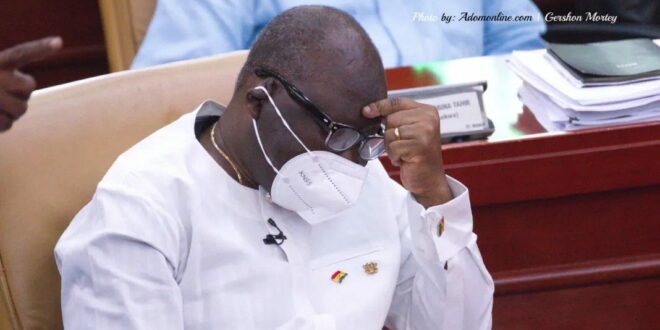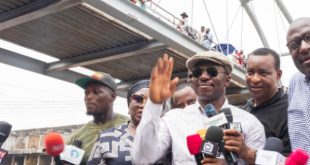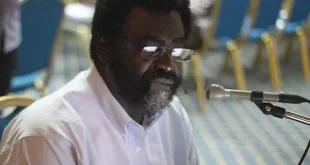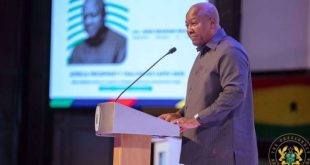The nation “would not be in this situation economic crisis but for the government’s failed, risky economic strategy that borrowed heavily from the international market to fund expenditures, pay maturing debt, support the cedi and possibly control the effect of the depreciation on inflation,” according to a statement released by OccupyGhana on Wednesday, 7 December 2022.
OG remarked that this dangerous tactic “effectively relied on good fortune and extremely astute economic management, both of which failed.”
Thus, it said, “although the government would seek to blame the pandemic and the Russia-Ukraine war for this disaster, it cannot evade or avoid the fact that our debt was unsustainable even before these external factors kicked in and compounded an already precarious situation”.
“Ghana has become broke under this government’s watch under circumstances that were avoidable, inexcusable, and unpardonable,” the group claimed.
To rescue the nation’s economic crisis-ridden economy, Ghana is now negotiating a $3 billion extended loan line with the International Monetary Fund.
As part of the IMF agreement, Finance Minister Ken Ofori-Atta proposed a debt restructuring scheme in the 2023 budget.
According to OccupyGhana, Ghana would not be in this “disaster” if the government had not borrowed so much money.
Read the 10 recommendation below:
TEN RECOMMENDATIONS
We, therefore, recommend 10 things that the government may act upon.
First, reduce the number of government appointees by at least fifty per cent.
This may be achieved by consolidating several ministries and slashing the number of political appointees (ministerial and otherwise), such as all deputies and the like, and entrusting public servant-technocrats with the responsibility of supporting substantive heads.
This will send a powerful message in these tough and painful times that the government is serious about its commitment to doing better while requesting sacrifices from the general public.
Second, let the president pay income taxes, too.
We should remove the tax exemption granted to the president under article 68(5) of the Constitution.
While the actual savings from this might not be much, it is hugely significant and relevantly symbolic.
The president must lead by example.
When he pays his taxes, then he can demand that the rest of us pay taxes too.
Third, it is time to rationalise the so-called ‘article 71 benefits.’
Ghana needs to end the three-decade-old grand conspiracy among the political class that milks Ghana under the false argument that article 71 authorises so-called ‘ex gratia payments.’
We must eradicate the multiple claims of ex gratia; the multiple claims over different administrative/government terms do not make sense and are difficult to sustain.
We must also immediately end the false scheme by which successive governments deliberately delay the setting up of the emoluments committee till the end of their terms, so that salaries and emoluments are agreed upon and calculated literally at the ‘midnight’ of the outgoing government, considered and adopted in secrecy to precious little debate, and then applied retrospectively.
Ghanaians only get to find out the huge pay-outs to the executive and legislators after the fact.
We demand that the committees are established at the start of each government so that we know what and how much the political actors are entitled to when they assume office.
The current government must establish the committees NOW.
Fourth, revise all tax exemptions, especially those granted to incomes and gains from portfolio investments.
The government must, as a matter of urgency, amend section 7(1)(p) to (v) of the Income Tax Act, 2015 (Act 896) to remove all or some of the exemptions on incomes and gains from portfolio investments.
These are not normal times, and we propose imposing a specific, time-bound withholding income tax regime on such earnings.
Ghana may consider re-granting the exemptions when we have recovered.
Fifth, intensify and institutionalise GRA’s invigilation activities.
In addition, the legal sanctions for under-reporting and tax evasion must be drastically applied.
Sixth, explain the source of funding of the proposed Financial Stability Fund (FSF).
Extreme transparency of the proposed programme and its implementation is required.
If the government is broke and requires an IMF bailout, where will the monies for the FSF come from?
Seventh, pursue the Auditor-General’s disallowances and surcharges.
The government must show some seriousness in pursuing those the Auditor-General has found to have caused loss to Ghana.
To the best of our knowledge, the government is doing nothing to enforce the Auditor-General’s disallowances and surcharges.
The president issued a terribly belated instruction to heads of institutions to provide to him the names of all persons identified to have caused losses to the state in the Auditor-General’s reports.
The president’s deadline has come and gone with no communication or indication on whether the names were indeed supplied to the president, and what the president is going to do with them.
Eighth, end galamsey.
The government has to address the galamsey menace as a matter of urgency, as our natural resources are plundered and the ecosystem destroyed.
The much-publicised Kumasi meetings do not appear to have borne fruit.
We have written to the president, at least, 9 times in the past six weeks, in addition to several other previous statements on this, challenging the government to properly regulate artisanal mining in a way that benefits the nation.
They have all been ignored.
Our current efforts will come to nothing if this canker is allowed to overcome any future economic recovery.
Ninth, slash all non-critical government expenditures. Implement a ruthless focus on prioritising government projects and expenditures, and ensure a strict relationship to GDP growth going forward.
And, the government must provide monthly reports on how much money all announced cost-saving measures have delivered.
We specifically recommend the suspension of all fees and allowances paid to persons appointed by the government to serve on various boards.
We also recommend suspending all expenditures on the proposed National Cathedral.
Whatever arguments there might have been to support spending now-non-existent money on the proposed National Cathedral, have been eroded by the dire straits that the nation faces.
Our current situation makes the continued commitment in the budget to spend GHS80M on the cathedral, look like a vanity project.
We lose nothing by suspending expenditure on that project until the economy recovers.
Tenth, rationalise the president’s flagship programmes.
This includes the Free SHS scheme.
Every Ghanaian who can pay fees should pay.
Limit the scheme to only those who can prove that they are not capable of paying fees.
In conclusion, a government that is pleading with Ghanaians to bail it out of a self-afflicted disaster, must ‘bear fruits worthy of repentance.’
Source: Ghanatodayonline.com
 Ghanatodayonline.com News, Politics, Health, Education & More
Ghanatodayonline.com News, Politics, Health, Education & More




